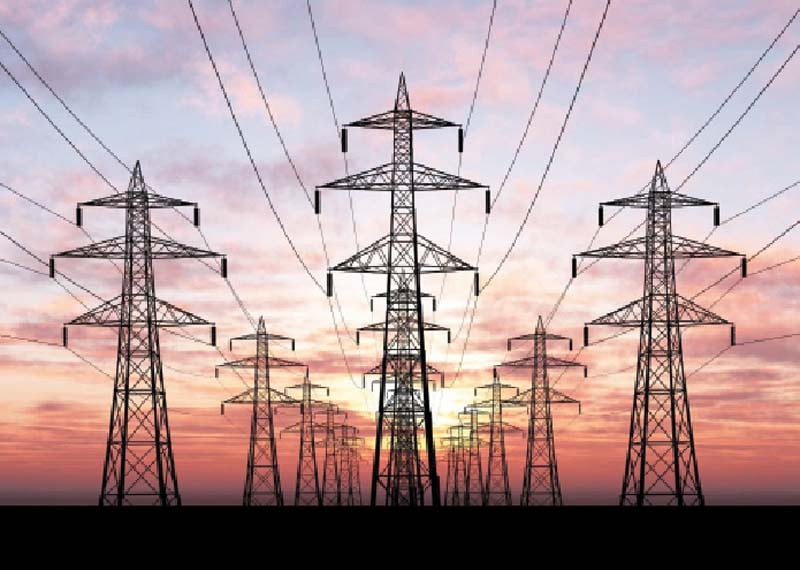Power dues adjustment via NFC
The federal government on Monday reviewed the possibility of adjusting provincial reconciled outstanding electricity bills' dues against their shares under the National Finance Commission award, after limiting power sector losses to Rs221 billion, down by 40%.
The Power Division shared the performance of the power distribution companies with the Economic Coordination Committee (ECC) of the Cabinet, which showed a mixed result in reducing losses and improving collection of the bills. Where there was still some increase in distribution losses, the recoveries did improve during July-March period of this fiscal year, showed the official record shared with the ECC.
The ECC instructed the Power Division to further improve the fiscal position of these companies, as both the losses and recoveries were still in breach of the targets given by the power sector regulator; the National Electric Power Regulatory Authority (Nepra).
Compared to the estimates of adding Rs390 billion in the power sectors losses during July-March period, the increase was 221 billion, said Sardar Awais Laghari, the Federal Minister for Power while talking to The Express Tribune.
The Minister added that even compared to the same period of the last fiscal year, the losses were Rs143 billion, or 40% less. This showed that the boards of these distribution companies were on track to achieve their targets, except for Hyderabad and Sukkur, said the Power Minister.
Last year, the government had replaced the boards of the power distribution companies but did not touch Hyderabad and Sukkur boards due to an understanding reached with the Pakistan Peoples Party.
The Minister said that after improving recoveries from the private sector, his ministry has now sought the Finance Ministry's help in recovering outstanding dues from federal and provincial governments.
In December, the federal government had asked all four provincial governments to clear their electricity bills amounting to Rs150 billion to avoid power cuts and financial losses to the national economy. Sindh tops the list with payables totalling Rs59.7 billion as of September last year, followed by Balochistan's Rs39.6 billion and Punjab's Rs38 billion, while Khyber Pakhtunkhwa has the lowest electricity payables amounting to Rs8.9 billion.
A Finance Ministry official said that there was a mechanism available to adjust only those dues, which are reconciled and confirmed by the provincial governments. These payments are adjusted against the NFC dues but only when these are confirmed by the provinces, he added.
According to the information shared with the ECC, compared to 15.14% losses during the first nine months of the last year, the figure slightly jumped to 15.7% this March. The reason behind the increase was the poor performance of Quetta, Sukkur, Hyderabad, Gujranwala and Lahore. The Faisalabad, Islamabad, Multan, Peshawar and Tribal districts companies reduced their losses compared to the last year. The bills' recoveries improved from 92% to 93.8% this March because of better performance of all companies except tribal districts, Hyderabad and Sukkur firms.
The Power Minister said that the circular debt was also almost stagnant due to the better performance. He said that compared to the estimates of adding Rs411 billion in the flow of the circular debt, there were only Rs2 billion additions during the first nine months of this fiscal year. The total circular debt stood a little under Rs2.4 trillion.
Among other decisions, the ECC took up a summary submitted by the Petroleum Division for extension in the validity period of sovereign guarantees issued against running finance facilities of Rs50 billion obtained from banks for LNG payments by the Sui Northern Gas Pipelines Limited (SNGPL). The Committee discussed the matter and approved extension up to June 2026 of the said sovereign guarantees, on the basis of improved cash flows of the company, according to the Finance Ministry.
The ECC also considered a summary by the Power Division regarding the solarisation of 27,000 agriculture tube-wells in Balochistan, as decided by the Prime Minister on 2nd July 2024, at an estimated cost of Rs55 billion. The 70% subsidy has to be borne by the federal government. The ECC was told that an amount of Rs14 billion has already been released by the federal government while the remaining Rs24.5 billion was approved on Monday.
Furthermore, the ECC further instructed the Power Division to closely monitor implementation of key components of the project, particularly the disconnection of tube-wells from the grid and removal of transformers and fixtures for every batch of feeders, as agreed under the project. The ECC also directed the Power Division to report back the progress on this account to ECC, in July.
Source: The Express Tribune























